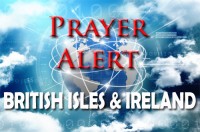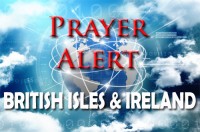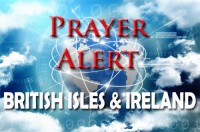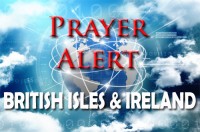Theresa May on North Korea
Speaking to reporters on her way to Japan, Theresa May four times refused to rule out British action to stop North Korea’s illegal missile launches, as the rogue state threatened to increase its military tests. She called on China to do more to rein in dictator Kim Jong-un, and said such pressure was the key to easing the crisis. A British government source suggested that cyber-warfare might already be being deployed against North Korea, saying to reporters, ‘If we were doing that we certainly wouldn’t be telling you.’ Mrs May landed in Japan on 30 August, a day after a North Korean missile flew over Hokkaido. Her talks with President Shinzo Abe will focus on trade, security, and Kim’s nuclear and ballistic missile programmes.
Young people’s fear of crime
New research from the Children’s Society reveals that fear of crime is damaging the well-being of 2.2 million UK teenagers, with one in three girls fearful of being followed by a stranger and one in four boys worried they’ll be assaulted. Over one million older children are contending with at least seven serious problems in their lives, significantly harming their happiness. Fear of crime has emerged as the most widespread issue for children, with almost 40% worried about falling victim to two or more crimes. The survey of three thousand 10- to 17-year-olds revealed that 53% have experienced at least three hardships in the last five years, making them markedly unhappier. Teenagers with seven or more serious issues in their lives are ten times more likely to be unhappy than those with none. Also 2.1 million teenagers were worrying because their parents were struggling to pay the bills.
Bishops call for review of benefits freeze
Bishops have urged the Government to review its benefits freeze urgently, after a ‘deeply disturbing’ report, by the Child Poverty Action Group, found that poor working parents did not have the cash needed to look after children. Low-paid families are failing to keep up with inflation, and many welfare payments have been frozen. Families working full-time are 13% or £59 a week short of the amount needed to provide their children with a minimum standard of living, according to the report. The Bishop of Gloucester, Rachel Treweek, said, ‘We have heard a lot about how earnings are not keeping up with inflation, but there is an urgency to recognise that low-income working families are taking a double hit due to the four-year freeze in child tax credits and other benefits. With rising inflation, it is time to reconsider this policy in order to protect the living standards of the poorest families.’
Affordable housing
Speaking during a tour of the £800-million Countesswells new town development in Scotland on 30 August, the Scottish Conservative Party leader, Ruth Davidson, said there were still fewer homes being built than before the financial crash. She added, ‘We know there is a lack of housing across Scotland. We really need to get our fingers out and build more houses across the country. This new community simply wouldn’t happen without the support of the UK Government.’ Earlier this year 636 homes were earmarked for first-time buyers and renters by the Battersea Power Station Development Company, but by July it was offering only 386 affordable homes. The developers said the entire project may become financially unviable if they are forced to stick to their original figure, adding that they made the undertaking when London’s new-build market was booming and construction costs were lower. See:











